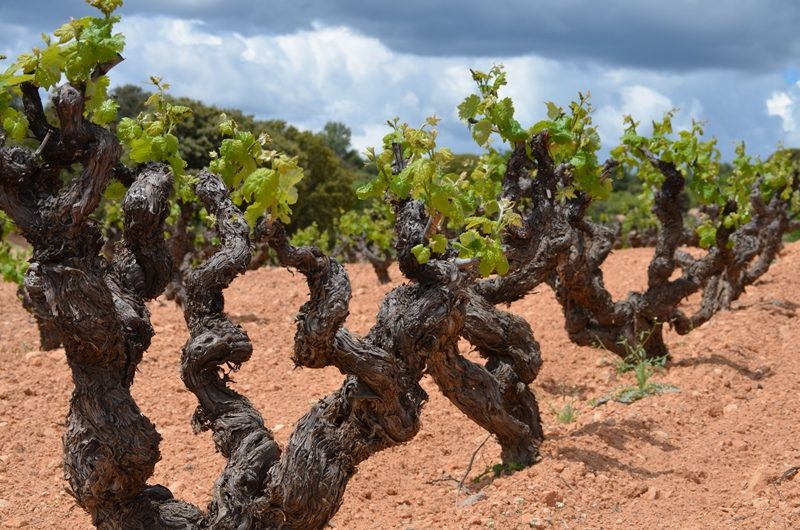
Castilla-La Mancha will be the first region to “eliminate paper in the relationship between links in the wine chain” by a QR code
Castilla-La Mancha will be the first region to “eliminate paper in the relationship between the different links in the wine chain” of the Autonomous Community.
It will do so through a digitization project that, with Blockchain technology, will allow through a simple QR code relate from the farmer to the consumer and the sector with the Administration; and there is also the traceability of such an important food as wine.
This has been said by the Minister of Agriculture, Water and Rural Development, Francisco Martínez Arroyo, today in Albacete, where this pioneering project of digitization of the wine sector has been presented. A project that has qualified “as a region”, which is launched from the Ministry of Agriculture, Water and Rural Development, in collaboration with the University of Castilla-La Mancha, the Science and Technology Park of Albacete and the company Tragsa that, In addition, it will have graduates from the Regional University.
It is an investment of 2.5 million euros of public investment at the disposal of innovation in a sector such as wine. In this way will be launched the concept of Blockchain so that, through a QR code, you can identify “everything we care about”, from the consumer who consumes the product in a restaurant or acquires it in distribution, and in the relationship between the Administration and the sector.
Martinez Arroyo said that what is at stake is to anticipate what society and the CAP itself will demand of us and to do so in a sector as important as this.
The Law of the Vine and Wine and its approval in Cortes at the turn of the summer
The Minister of Agriculture, Water and Rural Development, in addition, in a forum in which financial representatives or the agri-food sector, as representatives of UPA, ASAJA or Agro-food Cooperatives, has announced the most important points of the Law of the Vine and Wine that will reach the Cortes “at the turn of the summer” for its final debate and whose draft was approved yesterday in the Governing Council.
A law that is recovered, in the region that is considered the winery of the world, because it was repealed by the PP Government, something that has said was “a mistake”, especially because the wine sector “more relevant from a social, territorial and regional economic point of view”.
In data, this sector, in Castilla-La Mancha alone, he recalled, 4.6 percent of regional wealth; bills 1,740 million euros and, last year alone, 22.7 million hectolitres of wine and must were produced, of which were sold abroad, 17.2 million, 150 countries.
Following him, Martínez Arroyo recalled, there are 80,000 vineyards and 484 wineries and cooperatives that transform the product in the rural environment and a social economy “essential for our smaller towns”. And, “for this sector to have a future, the Law is necessary”.
A rule born of a strategic plan of the wine sector, agreed with the sector, and in which it was evident the need to have a law to achieve the objective of turnover in the sector of 2.500 million euros by 2025.
In this way, this regulation regulates the procedure for authorising new vine varieties, oenological practices, geographical indications and the traceability of wine, where this digitalisation project presented today in Albacete is enlivened.
It includes the creation of a regional wine committee and opens the door to a regional interprofessional wine, necessary for the organization and regulation of the sector
In addition, it creates the figure of farm wines, within the designations of origin and the Protected Geographical Indication, when the wine is made on the farm with grapes exclusively thereof, being “an additional optional labelling”.
The event, which took place at the Technological Park of Castilla-La Mancha in Albacete, was attended by, among others, the general director of the Scientific and Technological Park, Agustín Moreno, as well as the vice-rector of Transformation and Digital Strategy, Ismael García or the general secretary of the Council, Juana Velasco.
SOURCE: ELDIGITALDEALBACETE.COM
